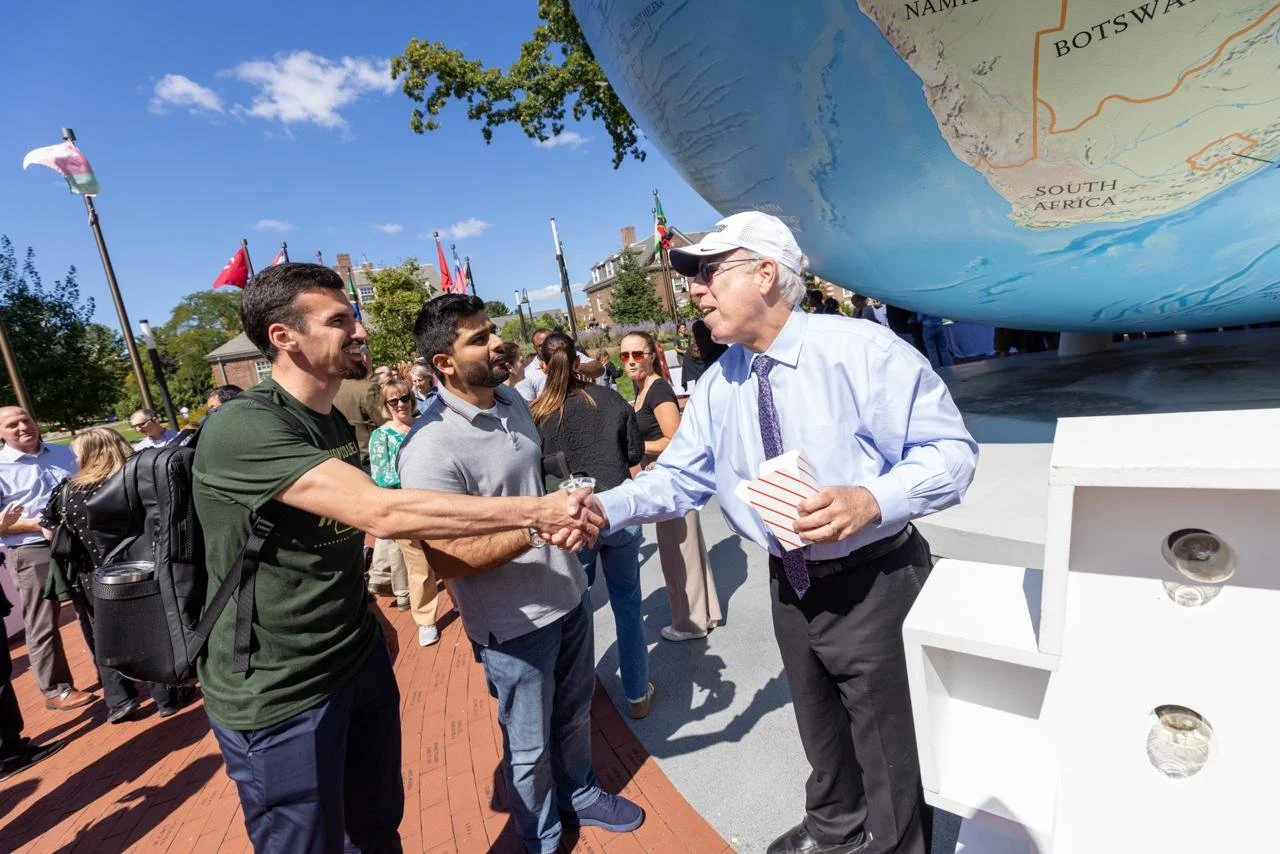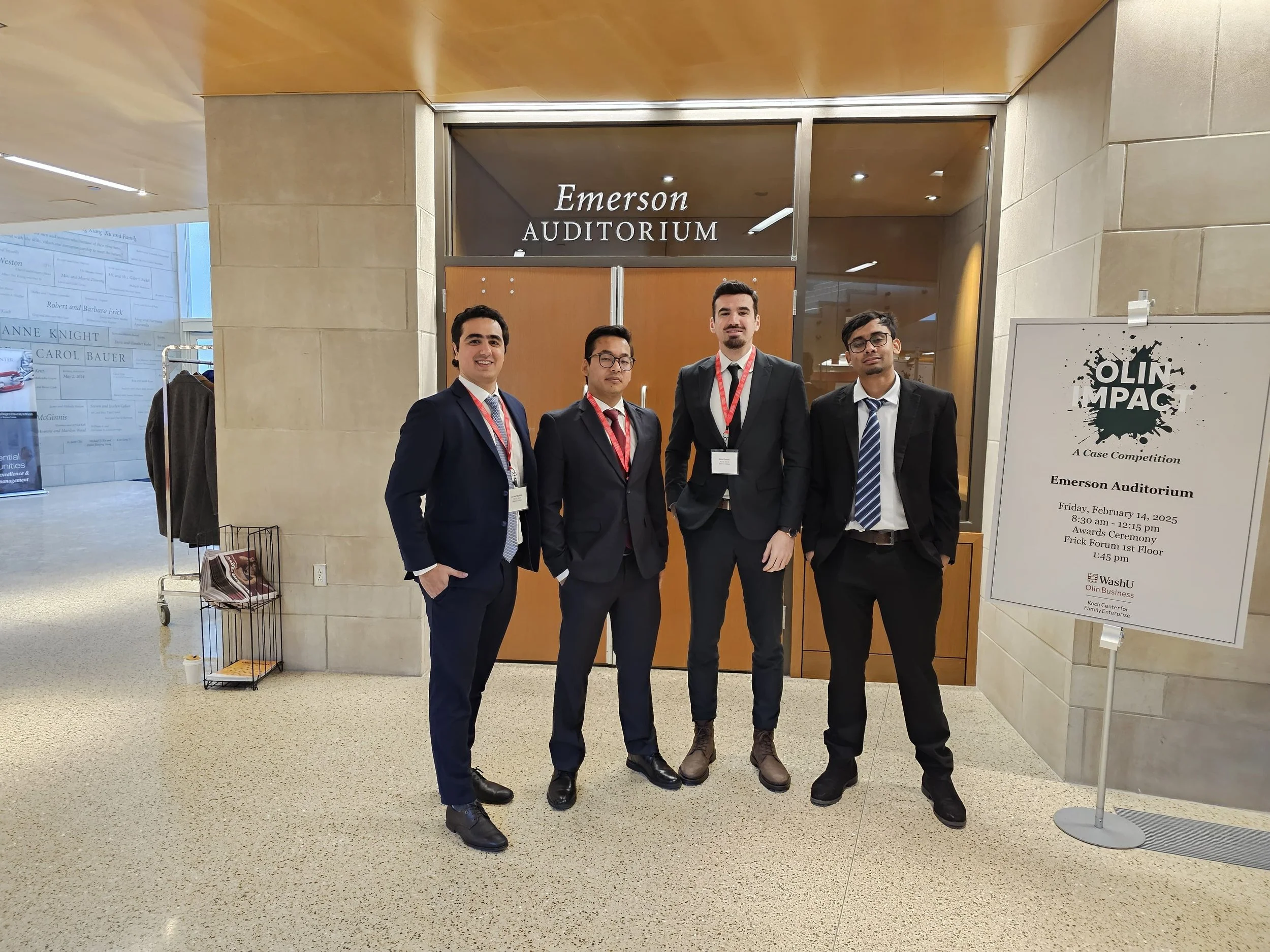Fulbright Foreign Student Program (Master’s Degree) Spotlight: Drin Govori
Applying and preparing for an opportunity like a Fulbright Scholarship can be a nerve-wracking experience. In order to ease your mind and provide you with an insider’s look into the Fulbright experience we decided to catch up with our Fulbright alumni and on-program scholars. We asked them to reflect on their Fulbright experience and answer our insightful questions.
We’re continuing our question series with our 2024–2025 Fulbright Foreign (Master’s Degree) grantee, Drin Govori, who is currently pursuing a two-year MBA in Business Administration at Babson College in Massachusetts.
What is your educational and professional background?
I earned a bachelor’s degree in Management and Informatics from the University of Prishtina before winning the Fulbright scholarship to pursue my MBA at Babson College, which is ranked number one globally for entrepreneurship.
Upon graduation from the University of Prishtina, I began my career at KEDS Energy, the largest corporation in Kosovo. I was hired in business development, from where I was pulled into the HR department. In my first HR role, I handled recruitment, helped implement SAP, and co-designed talent and innovation programs. Then, I was promoted to Senior HR Specialist, shifting focus to more strategic activities and cross-departmental initiatives, while also interacting with the top management. Alongside that industry work, I have remained active in academia, co-authoring a paper for the European Journal of Innovation Management and presenting two studies at the Academy of Management.
Why did you choose to apply for the Fulbright Program?
I chose the Fulbright Program because it connects my goal of growing Kosovo’s innovation scene with the tools to make it happen. Fulbright values sharing knowledge both ways, matching my aim to bring new ideas home and share Kosovo’s story abroad. Babson College’s hands-on, entrepreneurial setting will let me learn to lead intrapreneurship alongside founders and investors. Just as important, the Fulbright name earns respect worldwide, giving me the trust I need to bring together government, universities, and companies for future national-level projects when I return.
Tell us about your experience as a Fulbrighter in the U.S.
Being a Fulbrighter at Babson feels like living inside a miniature United Nations. In my full-time MBA cohort, roughly 76 percent of us are international students representing more than 60 countries. Every project team is a fresh mix of languages, industry backgrounds, and cultural viewpoints, so a case discussion about supply-chain risk can become a real-time lesson on how the same issue plays out in London, Bangkok, and Mexico City. This pushes me to frame problems through multiple lenses and, most importantly, to communicate ideas in clear ways.
Outside class, the energy is just as strong. I swap cooking tips with friends from India and Lebanon in Babson Commons and play soccer with friends from Latin America, Europe, and the US. These moments reinforce Fulbright’s mission of mutual understanding; they show that collaboration across borders is both possible and powerful. The Fulbright identity often sparks conversations, too: U.S. classmates are curious about Kosovo’s business scene, while fellow internationals exchange notes on navigating American workplace culture. This experience has broadened my professional toolkit, deepened my global network, and underscored why the Fulbright program matters. When people from sixty-plus nations tackle challenges together, innovation follows.
What is the most valuable component you have gained from the program?
The most valuable part of my Fulbright experience has been the network it unlocked and everything that came with it. I have built friendships and professional ties with classmates from sixty-plus countries, learned side-by-side with top Babson professors who give real-time feedback on my ideas, and plugged straight into Boston’s innovation scene through pitch nights, tech meet-ups, and visits to local start-ups. Those connections opened doors for leadership: I now serve as Chief of Academic Affairs on the Graduate Student Council, started the Intrapreneurship Initiative, run the soccer club, and I am the TA for one-year MBAs. Each role lets me implement classroom theory and showcase what I know.
How are you planning to implement the knowledge gained as part of the program at your home institution?
Back in Kosovo, I will use what I learned to strengthen the country’s entire entrepreneurship pipeline: first, by helping Kosovo join the Global Entrepreneurship Monitor (GEM) so decision-makers can base policy on hard data rather than intuition; next, by adapting Babson’s experiential teaching methods into local courses and workshops that make entrepreneurial education practical and accessible; then, by acting as a connector who regularly brings government officials, professors, and business leaders to the same table so research, regulation, and market needs move in sync; meanwhile, by promoting intrapreneurship inside established companies through training that shows managers how to launch internal ventures instead of relying only on start-ups; and finally, by demonstrating entrepreneurial leadership myself through mentoring student clubs, sharing insights at community events, and showcasing Kosovo’s success stories to inspire the next generation.
How was the application process for you, and what advice do you have for prospective candidates?
Begin the application process months before the deadline so you have time to rewrite and polish. Treat each essay like a small project that may need seven or eight drafts. Second, choose your three references just as carefully: pick people who know you in different settings (work, academic, community) and brief them on the message you hope to send so their letters reinforce, not repeat, your essays. Finally, spell out what you will do for Kosovo after the award. A concrete plan for sharing what you learn is not extra credit, it is central to being selected.
What is the biggest culture shock you are experiencing in the U.S?
Tipping was my biggest surprise. Every payment in the US, at a cafe, in a taxi, or at a barbershop, comes with a screen or jar asking for extra money. At-home tips are small or already in the price, so I rarely think about them. Here, I kept pausing to figure out if 15 percent was too low or 20 percent too high. Some places even start at 22 percent, which feels strange when you are just buying a coffee. I always googled “normal tip” and still worried I might choose the wrong amount.
What is your favorite place you have visited while participating in the Fulbright program?
New York City stands out as my favorite stop during the Fulbright journey.
What is your favorite American dish/food?
That is got to be the classic Boston lobster.






